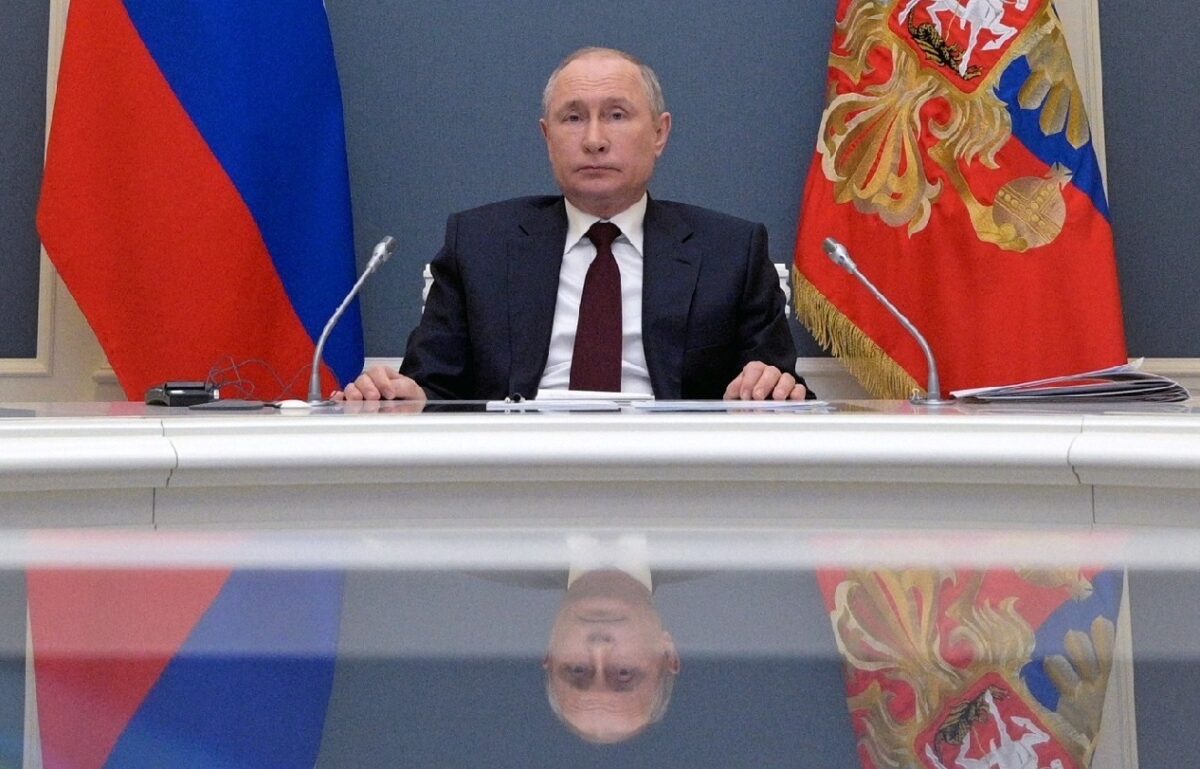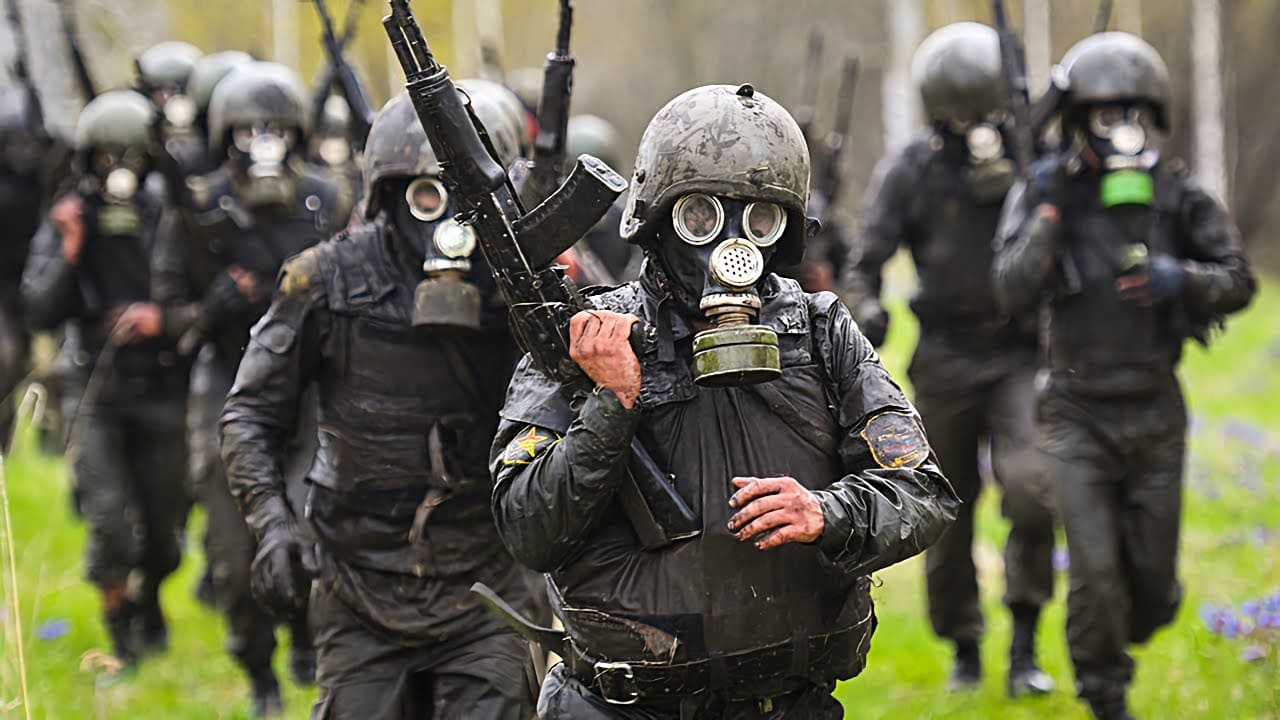We must look to history to understand the Putin speech today and the path forward for Russia: The second half of the nineteenth century was good for imperial Russia. While defeat in the Crimean War checked its expansion southward, its army steamrolled across Central Asia to Kamchatka and the Pacific Ocean. Russia appeared strong—a superpower of its day. Emancipation of the serfs encouraged urban industrialization. The Ottoman Empire may have been “the sick man of Europe,” but Russia was a force with which to reckon. There were hiccups. In 1861, Russian forces attempted to establish a permanent presence on Tsushima, a Japanese island in the Korean Strait, but Japanese and British resistance rebuffed the attempt. Still, the Russian rout of the Ottomans in the 1877-8 war laid the ghosts of Crimea to rest.
Appearances can deceive, however. The Tsushima Incident imprinted itself in the Japanese psyche and consolidated belief in Japan that Russia posed a grave and growing threat. Russia’s diplomatic interference after Japan’s Korea conquest exacerbated Japanese unease. At first, the Japanese sought to negotiate and cede Manchuria as a zone of Russian influence in exchange for Japanese primacy in the Liaodong Peninsula and northern Korea. Russia believed itself strong and Japanese concerns irrelevant and so haughtily rebuffed the island nation. Together, these led to Japan’s decision in 1904 to attack the Russian settlement and garrison and fleet at Port Arthur. The rest is history. Russia sought to reinforce its army and navy after its initial failure, but the logistical challenges were simply too great. In 1905, U.S. President Theodore Roosevelt helped broker the Treaty of Portsmouth that formalized Russia’s defeat. For his efforts, Roosevelt won the Nobel Peace Prize.
Back to Ukraine. Last evening, Russian President Vladimir Putin lashed out in a televised speech. He again warned he could use his nuclear arsenal, a very real threat for which responding with boilerplate diplomatic language does not suffice. He announced further mobilizations, presaged annexation of some territory, and said there would be fake referenda in others leading to the same aim. It was bluster meant to cover weakness, but dangerous nonetheless.
The White House is right to worry, but the cost of self-deterring in the face of Putin’s madness is too high to bear. At issue is not simply some tracts of eastern Ukraine and Russia-occupied Crimea, but rather the post-World War II liberal order. To compromise on Putin’s conquest, as former Secretary of State Henry Kissinger suggested, would be to reward aggression and lower the barrier to its use by immunizing aggressors from the consequences of their actions. In addition, if Putin is allowed to digest chunks of Ukraine, he will need to subsidize them in a way that will force Putin into further adventurism to distract Russians from the financial price of administering the new territory.
Instead of compromise, Putin’s threats require a supply of both defensive and offensive systems not only to Ukraine, but to Japan and pro-Western countries along the entirety of Russia’s frontier. Putin should know that while the Ukraine conflict is now limited to Ukraine, he puts Russian territory not only alongside Ukraine’s frontier at risk, but rather Russia’s entire periphery. After all, there is not a single neighbor of Russia that it has not victimized at some point in history.
Internally, Putin likely understands what Ukraine has become. While Putin hoped that the invasion of Ukraine might be like Catherine the Great’s Polish Wars, he has instead replicated the strategic disaster of the Russo-Japanese War. Putin knows that rather than expand territory and usher in a Golden Age like Empress Catherine the Great did, he has set Russia down the path of chaos, revolution, and perhaps territorial erosion as Nicholas II did. The humiliation of Russia’s defeat by Japan led to the 1905 Revolution that saw the creation of the Duma to constrain Tsar Nicholas II’s power, but it also presaged the collapse of the entire system and Nicholas II’s execution just over a decade later. Putin has, simply put, become a 21st Century Nicholas II.

Image of Russia President Putin. Image Credit: Russian Government.
Russia is a bear cornered. The situation is dangerous, but Russia’s defeat is one of its own making. The job of the West right now should be to limit collateral damage, not allow Putin to snatch victory from the jaws of defeat.
Now a 1945 Contributing Editor, Dr. Michael Rubin is a Senior Fellow at the American Enterprise Institute (AEI). Dr. Rubin is the author, coauthor, and coeditor of several books exploring diplomacy, Iranian history, Arab culture, Kurdish studies, and Shi’ite politics, including “Seven Pillars: What Really Causes Instability in the Middle East?” (AEI Press, 2019); “Kurdistan Rising” (AEI Press, 2016); “Dancing with the Devil: The Perils of Engaging Rogue Regimes” (Encounter Books, 2014); and “Eternal Iran: Continuity and Chaos” (Palgrave, 2005).

